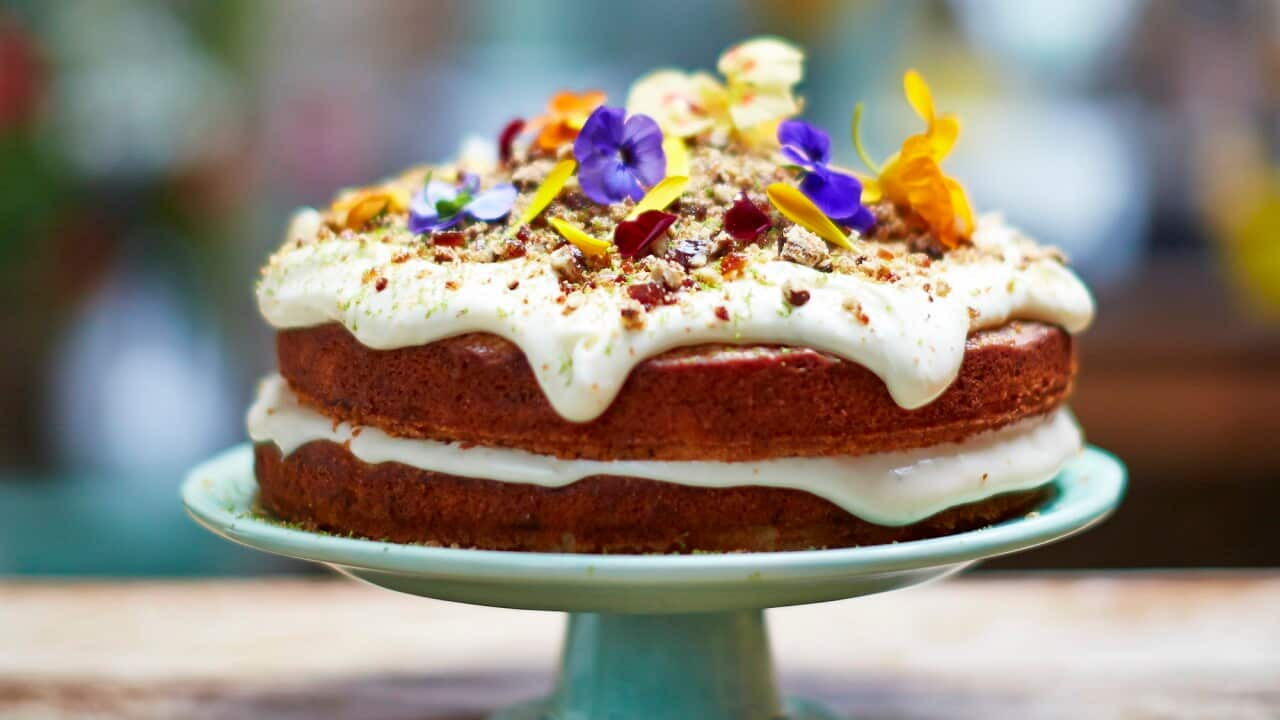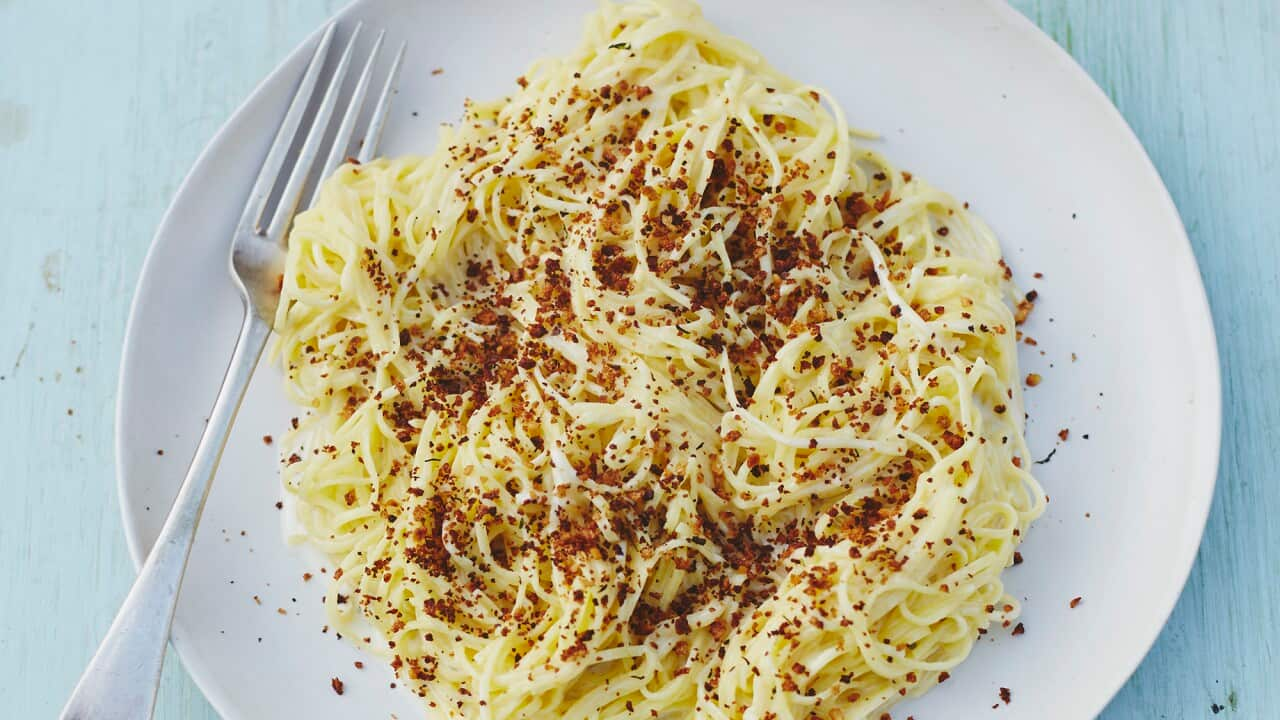serves
4-6
prep
1 hour
cook
45 minutes
difficulty
Easy
serves
4-6
people
preparation
1
hour
cooking
45
minutes
difficulty
Easy
level
Ingredients
- 2 medium brown onions, finely diced
- 3 cloves garlic, finely chopped
- 50 ml chicken or vegetable stock
- 2 pinches saffron
- 1 tsp cumin powder
- 1 tbsp hot smoked paprika
- 1 kg lamb shoulder, finely minced
- 50 g honey
- white pepper
- 2 eggs
- 150 g whole roasted almonds, pounded in a mortar and pestle until medium fine
- ¼ cup parsley, roughly chopped
- salt
- 200 g goat's milk yoghurt
- squeeze of lemon juice
- splash of extra-virgin olive oil
- sprinkle of paprika
- salt
Resting time overnight
You will need to begin this recipe 1 day in advance.
Instructions
Heat a healthy splash of olive oil on a medium heat in a fry pan, add the onions and garlic and cook gently for 8 minutes or so. You want the mix to soften nicely but not colour. While this is going on, gently heat the stock, add the saffron and set aside.
Once the onion mix is nice and softened, add the cumin and paprika and continue frying for another minute or so until you can smell the aromas. At this stage, add in the saffron stock, stir to combine and then turn the mixture out of the pan into a bowl and leave to cool to room temperature.
Meanwhile in a large bowl, place the lamb mince and honey and give it a very thorough mix with your hands. This is important as you want to emulsify the meat slightly, you will feel the mix become slightly sticky.
Once the onion is cool, add it to the meat mixture, along with a good amount of white pepper. Mix again nicely — hands are the best tool for this job. Put the mixture in a container, covering the surface with glad wrap to prevent oxidisation, and place in the fridge to rest.
The next day, take the mix out, then add the eggs, almonds, parsley and some salt and again mix well. Test the meatball mix by cooking a little in a pan to be sure that the seasoning is correct.
Preheat your oven to 160°C then grease a couple of shallow baking trays with oil.
Rub a little oil on your hands and start forming nice small balls with your hands, about 35 grams each. You should end up with about 40 meatballs. Keep oiling your hands as you go, as it will help prevent the mixture from sticking. Place the balls on the tray leaving a small amount of space between each one.
Once all your balls are nice, round and ready, cover the trays with foil and place them in the oven to cook for about 20 minutes. At this stage, remove the trays from the oven, remove the foil and increase the oven temperature to 220°C. Once the oven is nice and hot, place the balls back in for another 5–10 minutes to get a little colour and extra roasty flavour. Remove from the oven and let them rest for a moment or so.
While the balls are having a little rest, place the yoghurt in a bowl and mix with a squeeze of lemon, oil and salt. Place in a bowl and sprinkle over a little paprika.
Serve your balls on a large platter making sure you pour over any pan juices. Eat them dipped in yoghurt.
Cooks’s tips
• If you can’t find any goats yoghurt it is perfectly acceptable to substitute another type. If you are looking for a little extra spice in your life these balls are also delicious served with some harissa.
Photography by Sharyn Cairns. Styling by Lee Blaylock. Food preparation by Peta Gray. Creative concept by Lou Fay.
Cook's Notes
Oven temperatures are for conventional; if using fan-forced (convection), reduce the temperature by 20˚C. | We use Australian tablespoons and cups: 1 teaspoon equals 5 ml; 1 tablespoon equals 20 ml; 1 cup equals 250 ml. | All herbs are fresh (unless specified) and cups are lightly packed. | All vegetables are medium size and peeled, unless specified. | All eggs are 55-60 g, unless specified.









